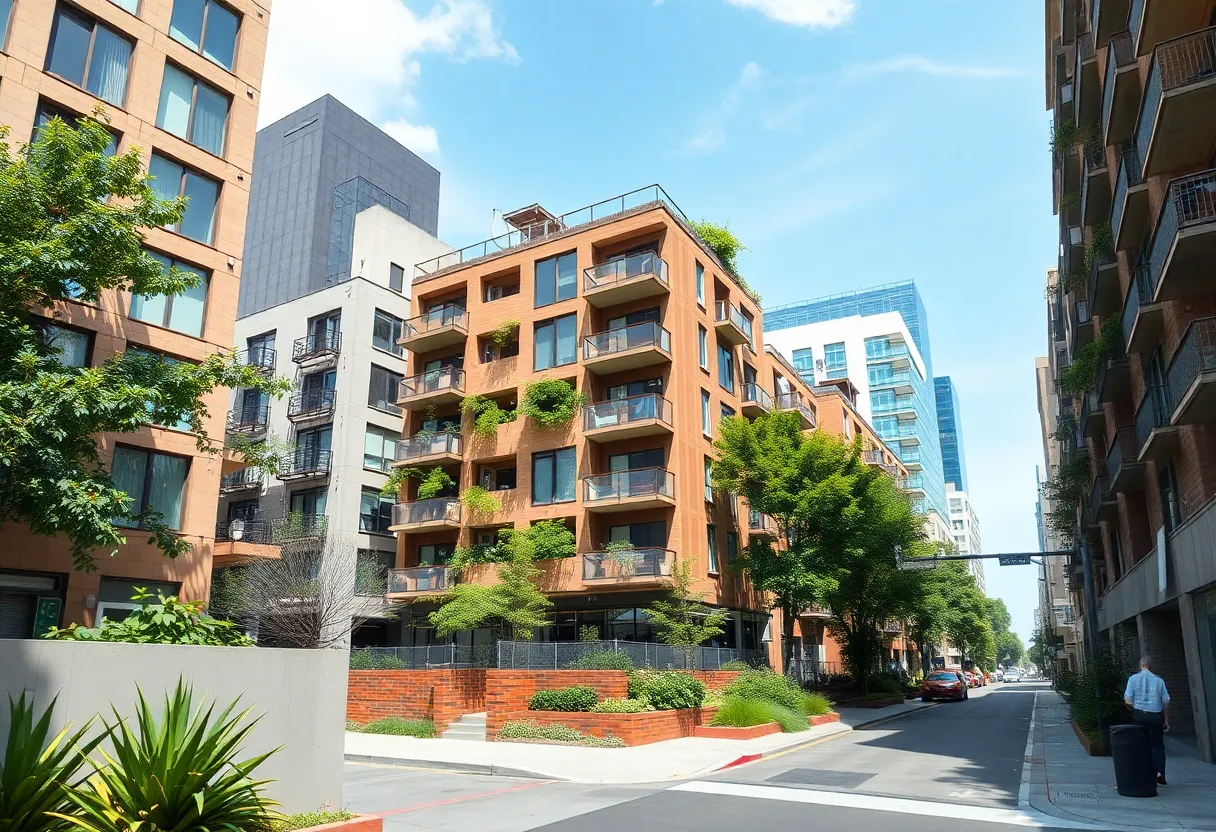News Summary
Los Angeles is facing a severe housing crisis, with over 75,000 residents unhoused. Local leaders are advocating for the conversion of vacant office spaces into affordable housing as a solution to the ongoing housing shortage. With downtown office vacancy rates hitting nearly 30%, transforming these spaces could create over 20,000 new housing units. The city aims to build around 500,000 new homes by 2029, exploring the expansion of the Adaptive Reuse Ordinance and other innovative approaches to address community housing needs.
Los Angeles is facing a severe housing crisis, with over 75,000 residents currently unhoused, many sleeping on streets, in cars, or under bridges. The city is grappling with a historic housing shortage, necessitating the construction of an estimated 2.5 million new homes by 2030. In a bid to address this urgent issue, local leaders are looking towards transforming vacant office spaces into affordable housing units, particularly as many office towers in the area remain largely unoccupied following the pandemic and the transition to remote work.
Recent data indicate that downtown Los Angeles has office vacancy rates nearing 30%, which creates a significant opportunity for adaptive reuse projects. If just 10% of these vacant office spaces were converted, over 20,000 new housing units could be created, providing much-needed relief to the unhoused population. Numerous cities across the country, such as Denver, Long Beach, and Inglewood, have successfully repurposed underutilized buildings into affordable housing, demonstrating the potential of adaptive reuse strategies.
Since 1999, Los Angeles’ Adaptive Reuse Ordinance has facilitated the conversion of older office buildings into residential units, resulting in over 12,000 new housing units in downtown alone. In 2023, efforts are underway to expand this ordinance to other parts of Los Angeles. This approach has proven to be faster, cheaper, and more environmentally friendly than traditional new construction. Conversions typically take between 12 to 18 months and are often 20-30% lower in costs than new builds, while also helping to reduce waste and the carbon footprint associated with construction.
Despite these promising avenues for addressing the housing crisis, significant challenges remain. State and local governments have allocated billions of dollars to combat the issue, yet audits have revealed $1.8 billion in unaccounted funds. Additionally, many proposed housing projects face delays due to zoning disputes, reviews by the Coastal Commission, and lengthy public hearing processes. Existing zoning policies predominantly favor single-family housing, limiting the construction of multifamily developments in various neighborhoods, which extends the timeline for creating new housing options.
The Los Angeles City Council has set an ambitious goal of building around 500,000 new homes by 2029, aligning with state housing obligations. To facilitate this, local leaders are pressing for the expansion of the Adaptive Reuse Ordinance and the streamlining of the approval process for conversions. Proposed solutions include tax incentives and low-interest loans specifically for affordable housing projects, as well as public-private partnerships to maximize resources.
Smaller initiatives are also being considered to help tackle housing needs more immediately. Suggestions for creating tiny homes on vacant lots and developing modular housing could offer rapid solutions that complement larger building efforts. However, community resistance to multifamily developments remains a significant barrier to achieving comprehensive housing growth within the city.
While there has been a surge in new building permits for accessory dwelling units (ADUs), these constitute a minimal share of overall housing growth. Research indicates that many ADUs either remain unoccupied or serve merely as additional space for current homeowners, limiting their effectiveness in enhancing the housing supply. Future housing efforts will need to adapt zoning regulations and shift community perceptions to effectively meet the growing housing demands of Los Angeles.
As the city navigates these complex challenges, the potential to transform unused office spaces into homes offers a promising pathway to alleviate the housing crisis and provide shelter for those in need.
Deeper Dive: News & Info About This Topic
HERE Resources
Los Angeles Celebrates the Annual Día de los Muertos Festival
Los Angeles: A Vibrant Theater Destination Celebrating Diversity
Los Angeles to Celebrate Día de los Muertos with Vibrant Events
Affordable Housing Complex Proposed in West Los Angeles
Hakeem Jeffries Champions Proposition 50 in LA Churches
Los Angeles County Rental Market Stabilizes After Wildfire
Federal Charges Filed in LA Homelessness Fraud Case
Significant Underreporting of Homeless Population in LA
GAF Energy Announces Relocation to Texas
California Surpasses Japan to Become Fourth-Largest Economy
Additional Resources
- Daily Bruin: Professors React to New Law on LA Housing
- Smart Cities Dive: Solving LA’s Housing Crisis
- Los Angeles Times: ADU Housing Shortage
- ABC7: Newsom Signs Bill for More Apartments
- Multi-Housing News: Solution to LA’s Housing Crisis
- Wikipedia: Housing Crisis
- Google Search: Los Angeles Housing Crisis
- Google Scholar: Los Angeles Housing Policy
- Encyclopedia Britannica: Housing
- Google News: Los Angeles Housing

Author: STAFF HERE HOLLYWOOD
The Hollywood Staff Writer represents the experienced team at HEREHollywood.com, your go-to source for actionable local news and information in Hollywood, Los Angeles County, and beyond. Specializing in "news you can use," we cover essential topics like product reviews for personal and business needs, local business directories, politics, real estate trends, neighborhood insights, and state news affecting the area—with deep expertise drawn from years of dedicated reporting and strong community input, including local press releases and business updates. We deliver top reporting on high-value events such as the Hollywood Bowl summer concerts, the Hollywood Christmas Parade, film premieres at TCL Chinese Theatre, and festivals at the Magic Castle. Our coverage extends to key organizations like the Hollywood Chamber of Commerce and Visit Hollywood, plus leading businesses in entertainment, dining, and tourism that define the local economy. As part of the broader HERE network, including HERELosAngeles.com, HEREBeverlyHills.com, HEREAnaheim.com, and HEREHuntingtonBeach.com, we provide comprehensive, credible insights into Southern California's dynamic landscape.





